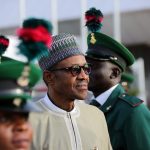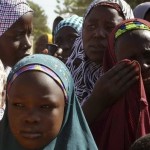CBN Okays Foreign Currency Cash Deposits Into Dom Account, Stops Sale of Forex to BDCs
Banking & Finance, Business News, Latest Headlines Tuesday, January 12th, 2016
The Central Bank of Nigeria, CBN, has stopped, with immediate effect, the sale of foreign exchange, forex, to Bureaux de Change, BDCs, as part of measures to reduce the pressure on the nation’s foreign reserves.
The reserves, which closed last year at $28.364 billion, dropped last weekend to $28.193 billion, showing a depletion by $170 million in the first trading week of this year. To date, it had lost about $3.8 billion since mid last year when CBN announced a recovery to $31.8 billion.
As the new policy shift was being announced, yesterday, the national currency, Naira, completely reversed its Christmas gains, hitting a new low value of N283/USD1 in BDCs and the parallel markets. The currency had gained from low business cycle of Yuletide and informal supplies from returning Nigerians, appreciating to N265/$1.0 against N281/$1.0 it recorded in the middle of last month.
The Governor of the CBN, Mr. Godwin Emefiele, who announced the policy change in Abuja, yesterday, said BDCs are now to source forex from the autonomous market.
He also announced that members of the public can now resume transactions on their domiciliary accounts. That means bank customers can now resume depositing of foreign currencies in their accounts with their banks.
Emefiele’s words: “The bank (CBN) would henceforth discontinue its sales of foreign exchange to BDCs. Operators in this segment of the market would now need to source their foreign exchange from autonomous source. They must, however, note that the CBN would deploy more resources to monitoring these sources to ensure that no operator is in violation of our anti-money laundering laws.
“Despite the fact that Nigeria is the only country in the world where the central bank sells dollars directly to BDCs, operators in this segment have not reciprocated the bank’s gesture to help maintain stability in the market. Whereas the bank has continued to sell Dollars at about N197 per dollar to these operators, they have in turned become greedy in their sales to ordinary Nigerians, with selling rates as high as N250 per dollar.
“Given this rent-seeking behaviour, it is not surprising that since the CBN began to sell foreign exchange to BDCs, the number of operators have risen from a mere 74 in 2005 to 2,786 today. In addition, the CBN receives close to 150 new applications for BDC licences every month.
“Rather than help to achieve the laudable objectives for which they were licensed, the bank has noted the following unintended outcomes:
“Avalanche of rent-seeking operators only interested in widening margins and profits from the foreign exchange market, regardless of prevailing official and inter-bank rates;
“Potential financing of unauthorized transactions with foreign exchange procured from the CBN;
“Gradual dollarization of the Nigerian economy with attendant adverse consequences on the conduct of monetary policy and subtle subversion of cashless policy initiative; and prevailing ownership of several BDCs by the same promoters in order to illegally buy foreign currencies multiple times from the CBN.”
He described the insatiable appetite of BDCs for forex as “a huge hemorrhage on our scarce foreign exchange reserves, and cannot continue especially because we are also concerned that BDCs have become a conduit for illicit trade and financial.”
Emefiele said BDCs operators who cannot cope with the new regulation had the option of turning in their licences to collect their N35 million cautionary deposits with the CBN.
On foreign currency deposits
On foreign currency deposits, Emefiele said: “The bank would now permit commercial banks in the country to begin accepting cash deposits of foreign exchange from their customers.”
According to the governor, the policy objectives for banning the foreign currency deposits have been achieved.
He explained that CBN put the policy in place because it discovered that speculators were withdrawing their Naira deposits and using same to buy up foreign currencies and then depositing same in banks and waiting to change the same at higher rates.
His words: “We discovered that Nigeria was fast approaching the dollarization of the economy. At that time we saw that a lot of people were speculating and there were a lot of speculative attacks on the currency (Naira).
“We saw situations where people were going into their accounts, took the Naira out of their accounts to buy dollars. Some were going to their banks to borrow money to buy dollars and then pass those dollars to their accounts and it got to a point that the banks vaults were full and the banks wanted us to collect the cash and to give them electronic dollars which we said we could not do.
“What we had to do at that time, it was like a flood, a torrent that we had to put break to that flood. At this point, we think, let’s open the tap a little and let’s see whether there will be proper behavior by the operators and the people in the market.”
Vanguard
Related Posts
Short URL: https://www.africanexaminer.com/?p=29342






















